James Averdieck made pots of money from Gü and The Coconut Collab. Now he’s trying his luck again with a new cookie dough dessert brand
James Averdieck is at it again. The serial entrepreneur behind Gü and The Coconut Collab has a new venture: Spooners. Designed to bring a touch of Americana to UK shelves, it’s a new cookie dough dessert brand, offering “indulgence” to younger adult consumers.
“Everyone knows what cookie dough is,” says the 58-year-old. “I haven’t invented anything new. I’ve just bought something in a more effectively spoonable format. Hence, Spooners. It’s slightly retro, it’s colourful, it’s quite in your face, and the occasion is less formal.
“This Americana opportunity is much more Ben & Jerry’s-ish. It’s basically couch surfing, Netflix, coming back from a night out, a bit of a treat in front of the telly.”
Already there are similar products in other parts of Europe, with Cookie Bros in Germany and Kook’s in France. Averdieck says he hopes to capitalise on an opportunity that is not “immediately, glaringly obvious” and “normalise and simplify” the proposition, initially in two twin-pack flavours – chocolate chip and double choc chip for £2.99 – until it becomes part of the market.
Serial ventures
It’s a far cry from Averdieck’s “first child”, Gü. Launched in 2003, the luxury dessert was positioned as “the cheat’s choice for a dinner party”.
“It was new and different, it brought something that didn’t exist before and the product was great,” he says. “Gü made a promise, kept it and was very successful.”
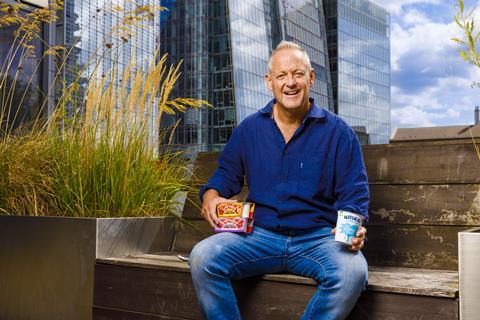
So successful, in fact, he sold it for £32m to Noble Foods in 2010. And while it made Averdieck a wealthy man (he netted £9m) he felt like a part of him was missing. “I think a lot of entrepreneurs are the same,” he says. “I love creating these brands, and it’s incredibly rewarding when you get it right.”
It was on an island holiday looking at coconut trees that inspiration struck once again. The Coconut Collab, launched in 2014, was an even further cry from Spooners, a coconut yoghurt business with no added sugar and a wholesome list of natural ingredients. “We were in the right place at the right time and lucky” to be ahead of the plant-based boom, recalls Averdieck.
‘I love creating these brands’
But while retaining control, his “second child” has not been without complications recently. To reflect a shift in attitudes he’s tweaking its messaging “not focusing on what’s not in it, but on what’s great about it”.
In doing so, he hopes to make the range more “mainstream”, which is also why prices have been slashed. The large yoghurt pot has dropped from £3.50 per pot to £2.50 despite costs rising. And without watering it down, Averdieck insists.
“If anything, we’ve improved recipes. We’ve reduced our prices through scale and investing behind efficiencies.”
It’s paying off. According to Circana, The Coconut Collab accounted for 28% of all value growth in the dairy-free yoghurt category in the past year. But though the brand has had great success in the UK, it struggled to achieve the same impact across the pond and Averdieck pulled out of the “very difficult” US market in 2023, selling the Bon Dévil brand (the US name of The Coconut Collab) to a New Jersey distributor.
“People loved our products, but that on its own isn’t enough, and we probably bit off more than we could chew, if I’m honest,” he says.
Name: James Averdieck
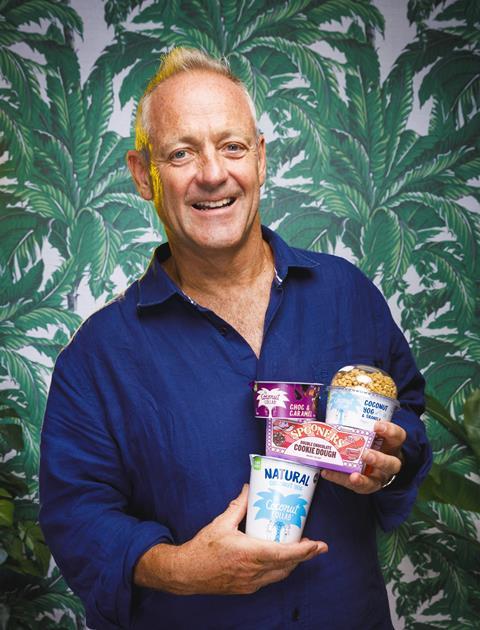
Age: mid-50s
Born: Harrogate
Family: Married with two kids and two step kids
Potted CV: Graduate job at Arthur D Little; strategy consulting, London and Boston; marketing at Safeway; sales at St Ivel; launched Gü and Coconut Collab.
Best career decision? To start Gü and The Coconut Collab.
Worst career decision? Not starting my entrepreneurial journey sooner.
Best piece of advice received? Follow your passion, trust your gut.
Business idol? Mike Hodgson – founder of The Collective Dairy
Hobbies/interests? Tennis. My wife Charlotte and I are also big foodies and love exploring new places and cuisines.
With its focus firmly on the UK, however, it has just cleared a Series B funding round and plans to double the value of the business. Part of the cash has been earmarked for a brand makeover this autumn, which will focus on colour and innovation, to “turn up the volume” on its mission. “We know our customers have a repertoire of yoghurts in their fridge, and we’d like to be on that shelf as well,” Averdieck explains.
The strategy for Spooners is different and reflects the contrast between yoghurts and desserts. While The Coconut Collab has no added sugar, “there’s clearly sugar in [Spooners] desserts”, says Averdieck. “You can’t make a dessert without sugar, it’s a mug’s game. It’s got to be an indulgence. It’s got to be a treat, because otherwise why bother?”
Which doesn’t mean the team hasn’t taken account of concerns around ultra-processed foods. Averdieck is quick to highlight the range’s “kitchen cupboard ingredients”. “It is indulgent, but it doesn’t have tonnes of crap in it,” he says.
Averdieck is convinced there’s a gap in the desserts market. “Although there’s already a broad range of premium and own-label offers in the dessert aisle, they’re normally aimed at older consumers or children.” With Spooners, Averdieck thinks he will be able to reach more people in their 20s and 30s. “My grown-up kids go crazy for this stuff, and their friends too,” he says.
More Big Interviews:
-
How Amit Chitnis helped Ocado Retail rediscover its mojo
-
How Hip Pop’s founders are bringing northern spirit to soft drinks
-
Isaac Fisher: the Pukka CEO with ‘orange optimism’
-
The people’s CEO: how Simon Roberts changed Sainsbury’s culture
Innovation pipeline
Scaling up the range shouldn’t be a problem, either. “You don’t have to be a rocket scientist to work out the next moves or the next flavours,” he says, pointing to pretzels, the addition of nuts or a larger sharing format as potential next steps.
The serial entrepreneur is “cautiously optimistic” that, once again, he’s backing the right horse. Spooners has already been welcomed by UK supermarkets, having secured a listing in Sainsbury’s and some independent retailers, with more of the mults expected to follow. But all his experience has taught him not to expect overnight success.
“We don’t tend to launch rocket ships,” he says. Instead, “we feel we’ve found this parking space that no one else has found and we can really grow it”.
“You get in early into a market and establish, it’s not necessarily going to be a huge thing immediately, but it’s going to grow if people like it. It’s going to work.”







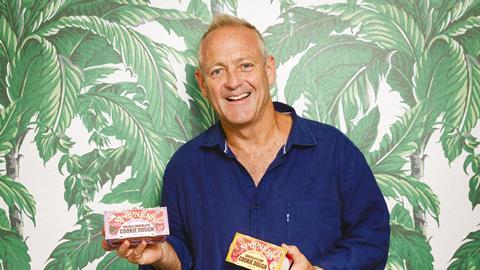





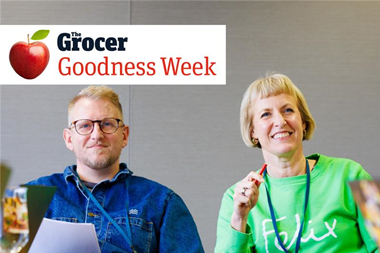

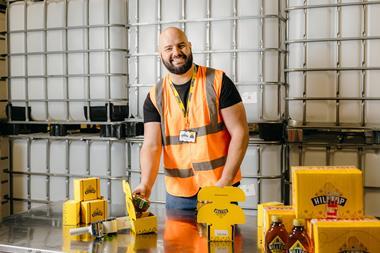
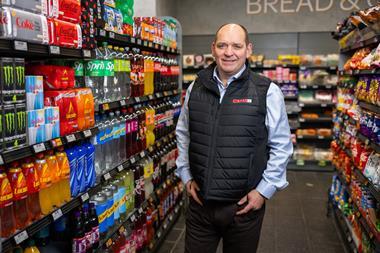
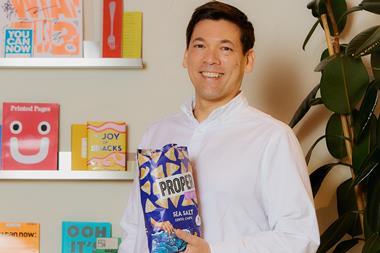
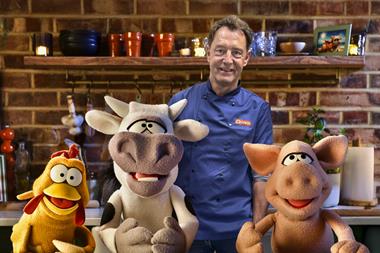
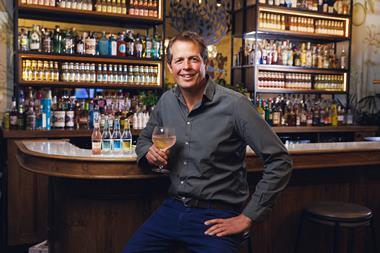
No comments yet